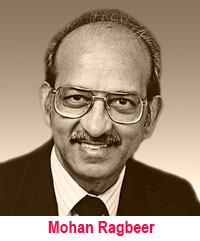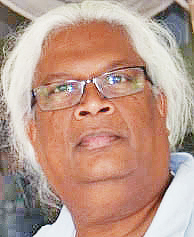Opinions
Canada elections

I’ve always regarded Don Cherry as a mouth disconnected from any higher centre other than for hockey, an uninhibited clown, costumed in motley, like Punch, who entertained millions while gladiators on skates fought, literally, to work a rubber disk into a small net. His shared rants with foil Ron McLean – Ron and Don, like classic pairs Abbott and Costello or Smothers Brothers – recall the jigs at the end of stage plays. I accepted them in that tradition, direct and abrasive, at times slanderous. You watched him if you liked hockey and buffoonery. Students of Shakespeare
would recognise him as a modern incarnation of Dogberry or Lavache, not smart enough to be Lear’s Fool; but the intellectual style has gone out of fashion; jesting ended centuries ago. In this case, Cherry’s ad-lib misfired; Ron should have restrained him; the modern age has no place for such pointed barbs as his. But hockey needs this interlude to make sense of the ignorant body-bashing inherent in the game. Cherry’s chauvinistic remarks betray a deep-seated ignorance of things outside the hockey rink, and a mean-spiritedness beyond the pale of classical jesting. His address to “you people” reflects bigotry, arrogance, ignorance and the self-confidence to display them in public, aware of a loyal audience of hockey fans, many young and impressionable, largely ignorant of people, history and demography, past and present, who might believe him, just by being the authority figure!
I would have ignored it as uninformed buffoonery, but he spoke to a significant population of similarly uninformed and chauvinistic, mostly white Canadians, of whom I’d met a goodly number in thirty months serving a small rural town and surrounding farming communities. They would add, when I was within earshot, “…doesn’t mean you, Doc!” Of course not, but it did mean my children, who heard enough of that intolerance in school from kids 8-18.
The “you people” address included all Canadian residents, limited only by the addition “who have come here…” thus targeting immigrants, forgetting that he too had descended from one: “You people … love our way of life, you love our milk and honey. At least you could pay a couple of bucks for a poppy.”
He had avoided mountains of knowledge to make that wild assumption. Pointing to the camera, he added “These guys paid for your way of life, the life you enjoy in Canada. These guys paid the biggest price.” The comment might have been less offensive, had his complaint been against all non-wearers of poppies, but he targeted migrants.
Among “these guys” and “you, people” were the non-white armies: Indians, Chinese, Japanese, West Indians, Africans and others that fought for the Allies in WWI and WWII. Chinese labour built the transcontinental railroads. Indians were insulted in BC, starved and expelled home in 1913. Most Brits, according to a recent survey, and likely Canadians, do not know of India’s huge presence in every theatre of the two world wars, almost 1.5 million in WWI; 50,000 died, 65,000 injured, and 10,000 reported missing, while 98 army nurses were killed. India supplied 170,000 animals, 3.7 million tonnes of materials, jute for sandbags, and a huge loan (value £2 billion today) to the British government. The commitment to WWII was similar, contributing heavily to three critical campaigns: Monte Cassino, D-Day, and Kohima and Imphal. Indians earned 11 Victoria Crosses in WWI and 17 during World War II, with several Singhs; but among Canada’s, no Cherrys!
Sir Claude Auchinleck, Commander-in-Chief of the Indian Army from 1942, concluded “the British couldn't have come through both wars if they hadn't had the Indian Army."
Three hundred Chinese and 222 Japanese Canadians fought in WW1, although BC residents had to enlist in Alberta. France recruited 37,000 Chinese workers, while the United Kingdom had 94,500, the largest and longest-serving non-European contingent. Japanese soldiers helped win victory at Vimy Ridge, and earned 11 medals. Post-war, they erected a memorial in Stanley Park, BC, and remained loyal, yet many veterans suffered internment and loss of assets, as all Japanese did, during WWII. In 1988, PM Mulroney apologised to Japanese citizens and Parliament approved a payment of $300M: “$21,000 for each of 13,000 survivors, $12 million for a Japanese community fund, and $24 million to create a Canadian race relations foundation, to ensure such discrimination never happens again.”
The tradition of poppies as a symbol of Remembrance Day was begun by two women independently, one American Moina Michael, moved by John McCrae’ poem, “In Flanders Field”, the other in France, Anne Guérin, the former to promote the welfare of veterans, the latter to help national rehabilitation. They persuaded the American Legion to adopt Michael’s red silk poppies as their memorial symbol, and a year later Mme Guérin took the idea to Britain where the newly-founded British Legion adopted it and a poppy factory started near London, employing disabled veterans. Many people buy poppies, but do not wear them; others wear them to avoid criticism. Some do not buy poppies feeling that the theme glorifies war, but they support veterans in other ways.
Finally in 2019, Britain adopted a new slogan “Remember together!”
I would have ignored it as uninformed buffoonery, but he spoke to a significant population of similarly uninformed and chauvinistic, mostly white Canadians, of whom I’d met a goodly number in thirty months serving a small rural town and surrounding farming communities. They would add, when I was within earshot, “…doesn’t mean you, Doc!” Of course not, but it did mean my children, who heard enough of that intolerance in school from kids 8-18.
The “you people” address included all Canadian residents, limited only by the addition “who have come here…” thus targeting immigrants, forgetting that he too had descended from one: “You people … love our way of life, you love our milk and honey. At least you could pay a couple of bucks for a poppy.”
He had avoided mountains of knowledge to make that wild assumption. Pointing to the camera, he added “These guys paid for your way of life, the life you enjoy in Canada. These guys paid the biggest price.” The comment might have been less offensive, had his complaint been against all non-wearers of poppies, but he targeted migrants.
Among “these guys” and “you, people” were the non-white armies: Indians, Chinese, Japanese, West Indians, Africans and others that fought for the Allies in WWI and WWII. Chinese labour built the transcontinental railroads. Indians were insulted in BC, starved and expelled home in 1913. Most Brits, according to a recent survey, and likely Canadians, do not know of India’s huge presence in every theatre of the two world wars, almost 1.5 million in WWI; 50,000 died, 65,000 injured, and 10,000 reported missing, while 98 army nurses were killed. India supplied 170,000 animals, 3.7 million tonnes of materials, jute for sandbags, and a huge loan (value £2 billion today) to the British government. The commitment to WWII was similar, contributing heavily to three critical campaigns: Monte Cassino, D-Day, and Kohima and Imphal. Indians earned 11 Victoria Crosses in WWI and 17 during World War II, with several Singhs; but among Canada’s, no Cherrys!
Sir Claude Auchinleck, Commander-in-Chief of the Indian Army from 1942, concluded “the British couldn't have come through both wars if they hadn't had the Indian Army."
Three hundred Chinese and 222 Japanese Canadians fought in WW1, although BC residents had to enlist in Alberta. France recruited 37,000 Chinese workers, while the United Kingdom had 94,500, the largest and longest-serving non-European contingent. Japanese soldiers helped win victory at Vimy Ridge, and earned 11 medals. Post-war, they erected a memorial in Stanley Park, BC, and remained loyal, yet many veterans suffered internment and loss of assets, as all Japanese did, during WWII. In 1988, PM Mulroney apologised to Japanese citizens and Parliament approved a payment of $300M: “$21,000 for each of 13,000 survivors, $12 million for a Japanese community fund, and $24 million to create a Canadian race relations foundation, to ensure such discrimination never happens again.”
The tradition of poppies as a symbol of Remembrance Day was begun by two women independently, one American Moina Michael, moved by John McCrae’ poem, “In Flanders Field”, the other in France, Anne Guérin, the former to promote the welfare of veterans, the latter to help national rehabilitation. They persuaded the American Legion to adopt Michael’s red silk poppies as their memorial symbol, and a year later Mme Guérin took the idea to Britain where the newly-founded British Legion adopted it and a poppy factory started near London, employing disabled veterans. Many people buy poppies, but do not wear them; others wear them to avoid criticism. Some do not buy poppies feeling that the theme glorifies war, but they support veterans in other ways.
Finally in 2019, Britain adopted a new slogan “Remember together!”
Happiness is eating a pound of jalebi
 Romeo Kaseram
Romeo Kaseram
Now that I have come to the stage in life where I say, “I miss my good friend…”, I should really treasure those I have left who do not have one foot in the grave, with the other on a banana peel.
I credit to a good friend who has since passed on this statement, “Having one foot in the grave…”, with its accompanying aside of the banana peel slipped in. Or, as he would have said, were he still alive, “I woke up one morning to discover I was dead, finding both feet firmly planted in the grave.” By now you have understood my good friend had a wonderful sense of humour, albeit with a bit of dark chocolate thrown in sometimes.
He is missed each day, and I treasure many of his sayings, and whenever I am reminded of one, it arrives with an accompanying picture of his lips twisted and mischievous, alongside his disarming good nature.
Yet another of his eternal statements is, “Some days, the devil tempts me…” Now just to give you a heads-up, whenever my good friend made one of these cryptic statements summarising a state of mind, a way of life, or an incident that had just occurred, he delivered it from, of all places, the pulpit. This is where he stood most Sundays; he did it gently, with a twinkle in both eyes, as he taught many among us to live better lives, respect each other, and to learn how far to push the boundaries of a friendship.
With his passing, he left behind a remarkable legacy – the sum of his entire self, embodied in little homilies, embedded as wry statements, and sometimes incarnated as a bad pun. Once he walked into the backyard and found me watering the thriving vegetable garden with a streaming hose. Clasping both hands and putting his feet together, and with a reverential bow, he delivered the following: “Lettuce spray!”.
So, when I recently teased a dear colleague, and regretted it right after, I came to understand why only my dearly departed friend could have delivered what I had said without evoking distress. He would have done so without the accompanying shot of pain, and of course, with that healing twinkle in the eyes. What I said to this good friend was, “What joy it is, eating an entire pound of jalebi!” As I said, “Sometimes the devil takes me…”
Her response was bewilderment and astonishment, and then immense concern expressed through a bout of sermonising about good health, self-care, and on-going activity. It goes without saying this friend’s calling in life was not to operate from a pulpit, but rather to preach from a medical text. I recovered quickly, noting with contriteness how easily I had allowed myself to push the limit of our friendship into her professional calling, greatly mistiming and so slipping with my delivery.
It took some time and effort to dig myself out of the hole I had entered, with both my feet firmly planted on a banana peel, and with my eyes wide open.
It was with these wide, opened eyes that I scanned the horizon of our street growing up back home, perpetually on the lookout for my grandmother bending the corner where I lived. She visited frequently, my youthful self-centredness screening everyone else out of the world, including my parents, into thinking I was the centre of Ma’s universe.
Centred in each visit was the moment when I spied her toiling up the street, the sun hot on her head, the moment energising me into a rapid stride, my two small hands extended. Always residing as a bulge in her skirt pocket was a small parcel with my name written on it. The ink for the script was nothing less than cooking oil seeping through a brown paper bag. Inside and still warm, perhaps from its frying, but more from the warmth of my grandmother’s love, were swirls of golden jalebi.
I lived for her arrival, quickly reaching into the vastness of Ma’s capacious pocket and retrieving the oily parcel, breaking off bite-sized pieces from the swirls of jalebi, then leaping away with joy.
How to explain to my friend the happiness contained in each crisp bite of the fermented, deep-fried flour thoroughly saturated with sugar? To invoke the hyperbolic, and then imbue it with an entire pound of sugar, still misses the existentialist moment of uninhibited joy jalebi always summons in me – even to this day.
Yet another of his eternal statements is, “Some days, the devil tempts me…” Now just to give you a heads-up, whenever my good friend made one of these cryptic statements summarising a state of mind, a way of life, or an incident that had just occurred, he delivered it from, of all places, the pulpit. This is where he stood most Sundays; he did it gently, with a twinkle in both eyes, as he taught many among us to live better lives, respect each other, and to learn how far to push the boundaries of a friendship.
With his passing, he left behind a remarkable legacy – the sum of his entire self, embodied in little homilies, embedded as wry statements, and sometimes incarnated as a bad pun. Once he walked into the backyard and found me watering the thriving vegetable garden with a streaming hose. Clasping both hands and putting his feet together, and with a reverential bow, he delivered the following: “Lettuce spray!”.
So, when I recently teased a dear colleague, and regretted it right after, I came to understand why only my dearly departed friend could have delivered what I had said without evoking distress. He would have done so without the accompanying shot of pain, and of course, with that healing twinkle in the eyes. What I said to this good friend was, “What joy it is, eating an entire pound of jalebi!” As I said, “Sometimes the devil takes me…”
Her response was bewilderment and astonishment, and then immense concern expressed through a bout of sermonising about good health, self-care, and on-going activity. It goes without saying this friend’s calling in life was not to operate from a pulpit, but rather to preach from a medical text. I recovered quickly, noting with contriteness how easily I had allowed myself to push the limit of our friendship into her professional calling, greatly mistiming and so slipping with my delivery.
It took some time and effort to dig myself out of the hole I had entered, with both my feet firmly planted on a banana peel, and with my eyes wide open.
It was with these wide, opened eyes that I scanned the horizon of our street growing up back home, perpetually on the lookout for my grandmother bending the corner where I lived. She visited frequently, my youthful self-centredness screening everyone else out of the world, including my parents, into thinking I was the centre of Ma’s universe.
Centred in each visit was the moment when I spied her toiling up the street, the sun hot on her head, the moment energising me into a rapid stride, my two small hands extended. Always residing as a bulge in her skirt pocket was a small parcel with my name written on it. The ink for the script was nothing less than cooking oil seeping through a brown paper bag. Inside and still warm, perhaps from its frying, but more from the warmth of my grandmother’s love, were swirls of golden jalebi.
I lived for her arrival, quickly reaching into the vastness of Ma’s capacious pocket and retrieving the oily parcel, breaking off bite-sized pieces from the swirls of jalebi, then leaping away with joy.
How to explain to my friend the happiness contained in each crisp bite of the fermented, deep-fried flour thoroughly saturated with sugar? To invoke the hyperbolic, and then imbue it with an entire pound of sugar, still misses the existentialist moment of uninhibited joy jalebi always summons in me – even to this day.
